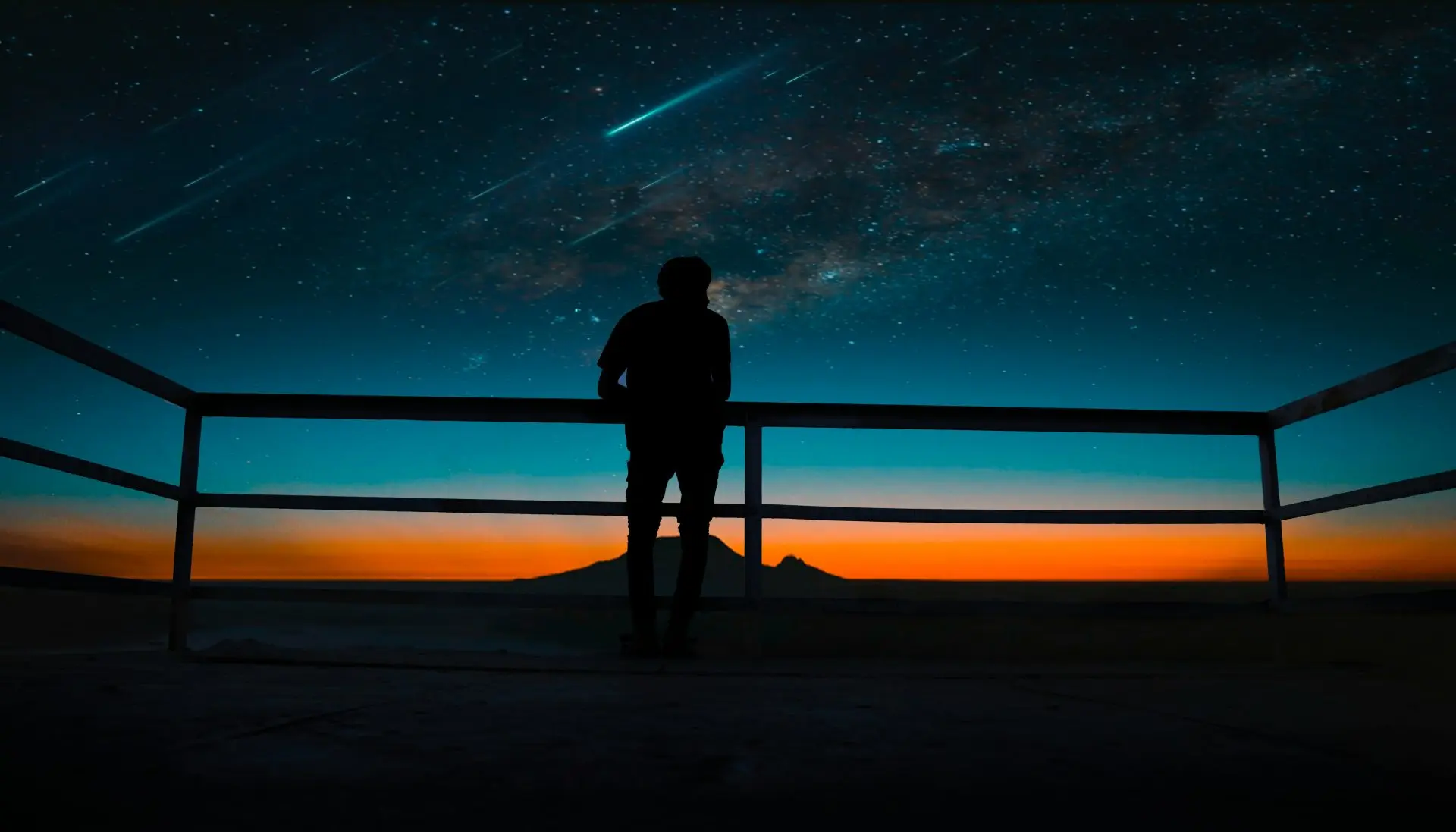Do Aliens Exist? What Science Reveals About the Unknown

Looking for more amazing products? Check out our online store and explore our collection here! Happy shopping!
Before diving in, please note: This post is for informational purposes only. If you’d like to know more about how we approach topics, feel free to check out our friendly Disclaimer Page.
Hey there, amazing readers! 
We’re committed to delivering quality posts, and your support (even just sticking around despite the ads) means everything to us. So, bear with us, and thanks for helping us keep the good vibes rolling. Now, on to the fun stuff!
TRANSLATE BUTTON AT THE END OF THE ARTICLE
Have you ever looked up at the stars on a clear night and wondered if we’re truly alone in the vast universe?
It’s a question that has fascinated humanity for centuries.
From ancient myths and legends to modern-day scientific exploration, the idea of extraterrestrial life has captured our imaginations and pushed the boundaries of our understanding.
So, let’s dive into the big question: Do aliens exist?
And what does science have to say about it?
The Immensity of the Universe
First, let’s talk about just how big the universe is.
Imagine the Earth as a tiny speck floating in an endless ocean.
Scientists estimate there are around 2 trillion galaxies in the observable universe, each containing billions (sometimes trillions!) of stars.
Many of those stars likely have planets orbiting them, which brings us to the concept of the habitable zone—a region around a star where conditions might be just right for life as we know it.
Given the sheer number of planets, it’s statistically probable that at least some of them host life.
But the universe is so vast that finding them is like searching for a needle in an intergalactic haystack.
What Is Life, Anyway?
Before we go further, let’s define what we mean by “life.” On Earth, life ranges from microscopic bacteria to towering redwood trees and intelligent humans.
Life requires certain conditions—water, energy, and organic molecules being the key ingredients.
Scientists have identified these as the building blocks of life, and when searching for aliens, they look for signs of these elements.
But who’s to say that life elsewhere must follow the same rules?
What if there are creatures that thrive in environments we’d consider uninhabitable, like the acidic clouds of Venus or the icy moons of Jupiter?
The Search for Extraterrestrial Life
The search for alien life falls into two main categories: intelligent life and microbial life.
Let’s explore both!
Intelligent Life and the Fermi Paradox
The idea of intelligent extraterrestrial civilizations has inspired countless sci-fi movies and books.
Scientists have even made efforts to reach out to them, like the Arecibo Message—a binary-coded radio transmission sent into space in 1974.
But here’s the puzzling part: despite our best efforts, we’ve found no definitive evidence of intelligent alien life.
This is known as the Fermi Paradox—if the universe is so big and old, and if life is so likely, why haven’t we found anyone else?
Possible explanations range from the idea that intelligent civilizations are rare or short-lived to the possibility that we’re simply not looking in the right way.
Microbial Life and Extremophiles
On the other hand, the search for microbial life is a bit more grounded—literally!
Scientists look for tiny organisms, like bacteria, that could survive extreme conditions.
Earth is home to extremophiles, organisms that thrive in boiling hot springs, deep-sea hydrothermal vents, and even radioactive environments.
If life can exist in such extremes here, it raises hopes that similar life forms could survive on Mars, Europa (one of Jupiter’s moons), or Enceladus (a moon of Saturn).
Promising Discoveries So Far
While we haven’t found aliens yet, there have been some fascinating discoveries that keep the hope alive:
Mars: Rovers like Curiosity and Perseverance have found evidence of ancient riverbeds and organic molecules on the Red Planet.
Could there be fossilized microbes buried in Martian soil?
Explore the Path to Spirituality and Enlightenment – Start Here.

Europa and Enceladus: These icy moons have subsurface oceans that might be heated by hydrothermal vents—potentially ideal conditions for life.
Exoplanets: The Kepler Space Telescope and others have identified thousands of exoplanets, some of which lie in the habitable zones of their stars.
These planets are prime candidates for further study.
UFOs and UAPs: What’s the Deal?
No discussion about aliens is complete without mentioning UFOs, or as they’re now officially called, Unidentified Aerial Phenomena (UAPs).
In recent years, governments around the world, including the United States, have declassified reports about strange objects seen in the sky.
While most UAPs are likely explainable by natural phenomena or human activity, some remain mysterious.
Does this mean aliens are visiting us?
Not necessarily.
But it does keep the door open for speculation.
The Role of Technology in the Search
Our ability to search for alien life has improved dramatically in recent decades.
Here’s how technology is helping us:
Radio Telescopes: Projects like SETI (Search for Extraterrestrial Intelligence) scan the skies for radio signals that might come from intelligent civilizations.
Space Missions: NASA and other space agencies are sending probes to explore planets and moons in our solar system.
Advanced Observatories: The James Webb Space Telescope is capable of analyzing the atmospheres of distant exoplanets, searching for biosignatures like oxygen and methane.
What If We Find Them?
Let’s take a moment to dream: What would happen if we discovered alien life?
If it’s microbial, the implications would still be huge—it would mean life isn’t unique to Earth.
If it’s intelligent life, well, that opens a Pandora’s box of questions.
How would we communicate?
How would this discovery change our understanding of our place in the universe?
And, honestly, how would humanity react?
The Philosophical Perspective
Even without solid evidence, the possibility of alien life makes us reflect on some big questions.
Are we special, or just one of countless life forms in the cosmos?
How does the existence of other life align with our religious or philosophical beliefs?
Thinking about aliens often makes us ponder our own existence in a much deeper way.
Conclusion
So, do aliens exist?
The truth is, we don’t know—yet.
But the search itself is a thrilling adventure that pushes the limits of science, technology, and human curiosity.
Whether or not we ever find them, the journey of looking to the stars helps us understand ourselves and our universe a little better.
What do you think?
Are we alone, or is someone—or something—out there?
Let’s keep exploring and see where this cosmic mystery takes us!

The Enlightenment Journey is a remarkable collection of writings authored by a distinguished group of experts in the fields of spirituality, new age, and esoteric knowledge.
This anthology features a diverse assembly of well-experienced authors who bring their profound insights and credible perspectives to the forefront.
Each contributor possesses a wealth of knowledge and wisdom, making them authorities in their respective domains.
Together, they offer readers a transformative journey into the realms of spiritual growth, self-discovery, and esoteric enlightenment.
The Enlightenment Journey is a testament to the collective expertise of these luminaries, providing readers with a rich tapestry of ideas and information to illuminate their spiritual path.
Our Diverse Expertise
While our primary focus is on spirituality and esotericism, we are equally passionate about exploring a wide range of other topics and niches 

To ensure we provide the most accurate and valuable insights, we collaborate with trusted experts in their respective domains 
Our blog originally focused on spirituality and metaphysics, but we’ve since expanded to cover a wide range of niches. Don’t worry—we continue to publish a lot of articles on spirituality! Frequently visit our blog to explore our diverse content and stay tuned for more insightful reads.
Hey there, amazing reader! 
Check out our store here and take a peek at some of our featured products below! Thanks for being awesome!












